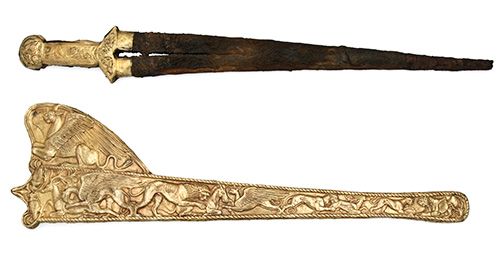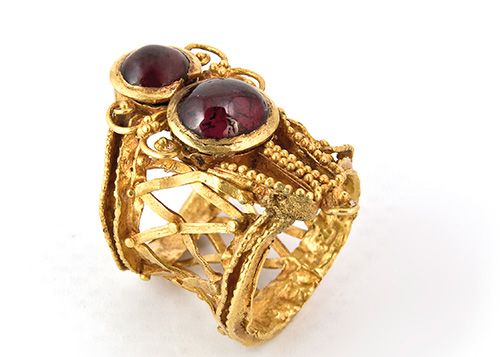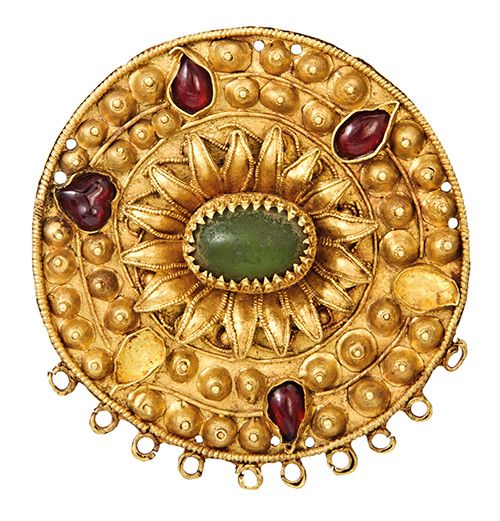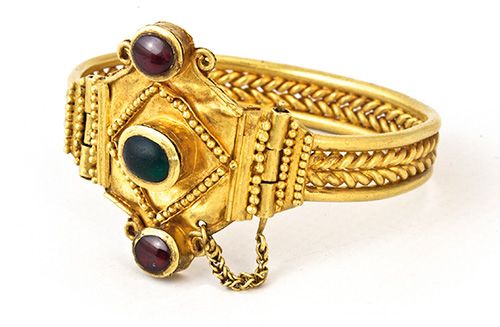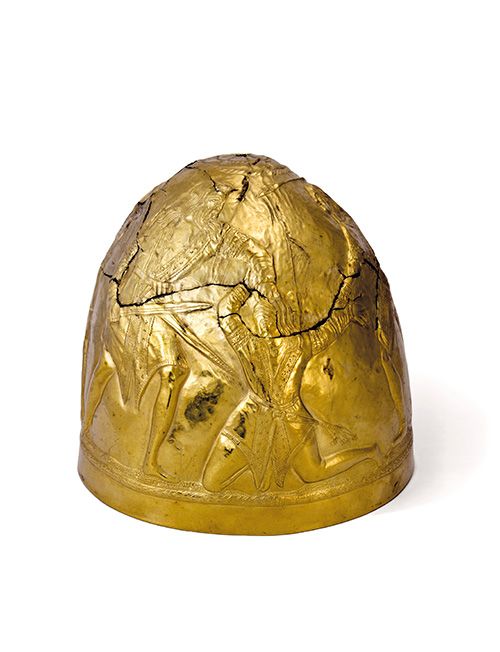Dutch Court Rules Crimean Artifacts on Loan Will Return to Ukraine
Following Russia’s annexation of the Crimean peninsula, Ukraine’s government asked that the artifacts be returned to Kiev
For the last few years, a Dutch museum has been stuck between a rock and a hard place. Just after the Allard Pierson Museum debuted a new exhibition featuring hundreds of gold artifacts from the Crimean Peninsula in 2014, Russia annexed the contested region. The land grab drew condemnation from all corners of the international community, but it had the side effect of stranding these artifacts in legal limbo. Now, after two-and-a-half years of legal battles a Dutch court has decided that the artifacts will be returned to Ukraine—not the Crimean museums that originally loaned them out, Nina Siegal reports for The New York Times.
The gold artifacts date back to several civilizations that had a foothold in the Black Sea, including the Scythians and ancient Romans and Greeks. Since Russia annexed the Crimean Peninsula, however, museum officials have been unsure of who they should return the archaeological treasures to—the Crimean museums, which are now technically a part of Russia, or to the Ukrainian government based out of Kiev, Jan Hennop reports for the Agence France-Presse.
The tricky political implications of whom the artifacts should be returned to cast a pallor over the exhibition. According to the Allard Pierson Museum’s original press release for the exhibit, titled “The Crimea: Gold and secrets of the Black Sea,” this was the first time that the objects were put on display outside of the peninsula where they were found.
Ultimately, the issue went before a Dutch court after the Ukrainian government in Kiev asked that the objects be returned there, for fear the Russia would appropriate what it saw as Ukrainian cultural heritage, Hili Perlson reports for artnet News.
"The decision of the Amsterdam district court means that not only Scythian gold is Ukrainian. Crimea is also Ukrainian," Ukrainian President Petro Poroshenko posted on his Facebook page, Hennop reports. "Crimea is ours, period. This follows the decision of a European country's court. We look forward to other positive news from The Netherlands."
While Poroshenko and other members of the Ukrainian government see this ruling as further support for their position that the Russian annexation of Crimea was wrongful and illegal, Russian and Crimean officials blasted the decision, Perlson reports.
“My opinion is that items that were excavated at one place and remained there for several centuries should be returned to the same museums,” archaeologist Valentina Mordvintseva, who is based out of Crimea, tells Siegal. “These museums didn’t want to give up the objects in the first place, and I convinced them, so I feel it is my fault.”
This likely isn’t the end of the legal battle, however. The Dutch court was careful to be clear that they were making no decisions on the rightful ownership of the artifacts. According to Unesco regulations, only a sovereign state can claim objects as cultural heritage, Hennop reports. As Crimea is an autonomous region and not a sovereign state, the judges said the case should ultimately be decided in a Ukrainian court.
For now, officials at the Allard Pierson Museum are just happy that the decision is out of their hands.
“We have no opinion about whether the decision is good or bad, but we are satisfied that the process is one step further,” museum spokesman Yasha Lange tells Siegal. “We have always said that we want to return these objects, but we didn’t want to be held accountable by one or another party.”
The Crimean museums have three months to appeal the ruling.
